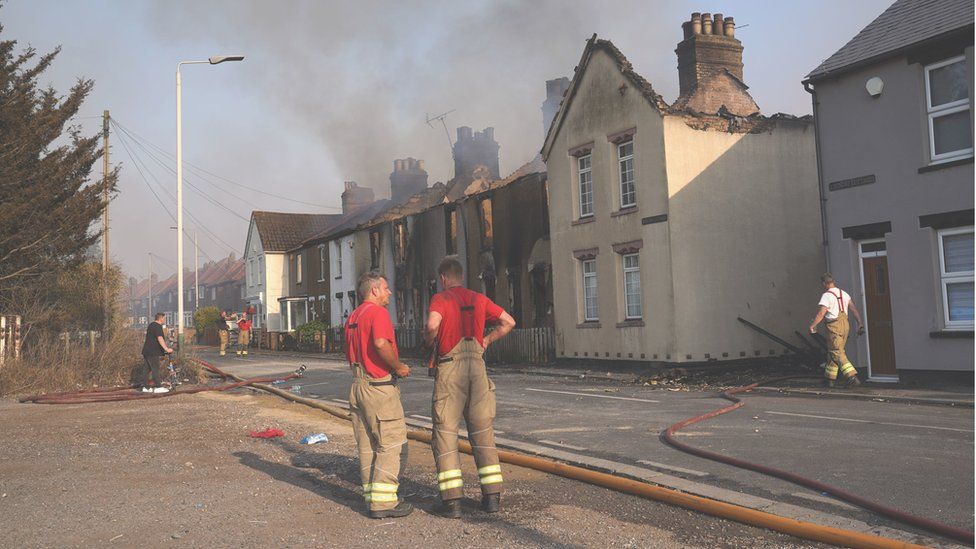
A fire destroys houses in a village in east London in July 2022, at the height of the summer heatwave
A new alert system will warn the public when high temperatures could damage their health this summer in England.
Run by the UK Health Security Agency and the Met Office, it is aimed at reducing illness and deaths among the most vulnerable.
Climate change is likely to make heatwaves more frequent.
UK temperatures rose above 40C for the first time last summer, the country’s fourth warmest, with Coningsby, Lincs, reaching a record 40.3C on 19 July.
Last year was the UK’s warmest – and this century has had 15 of the top 20, with all of the hottest 10 in the past two decades.
The Heat Health Alert system will operate year-round, but the core alerting season will run from 1 June to 30 September. The system will offer regional information and advice to the public and send guidance direct to NHS England, the government and healthcare professionals.
Individuals can sign up to receive alerts directly here, and people can specify which region they would like to receive alerts for.
There will be four alert colours, with green indicating no risk to health:
- yellow means the heat could affect the particularly vulnerable – over-65s and those with an underlying health condition
- amber means the impact could affect the wider population and is likely to be felt across the whole health service
- red means a significant risk to life even for healthy people and a severe impact across all sectors would be expected
Dr Agostinho Sousa, head of extreme events and health protection at the UK Health Security Agency, said the alert system would play “a vital role”.
“Last year saw record high temperatures across England and evidence shows that heatwaves are likely to occur more often, be more intense and last longer in the years and decades ahead,” he said.
“It is important we are able to quantify the likely impacts of these heatwaves before they arrive to prevent illness and reduce the number of deaths.”
Will Lang, from the Met Office, said the effects of human-induced climate change were already being felt on UK summers “with an increase in the frequency, duration, and intensity of extreme heat events over recent decades”.
The health alerts would help save lives, protect property and the economy “as we all work to tackle adverse weather and climate change”, he said.








